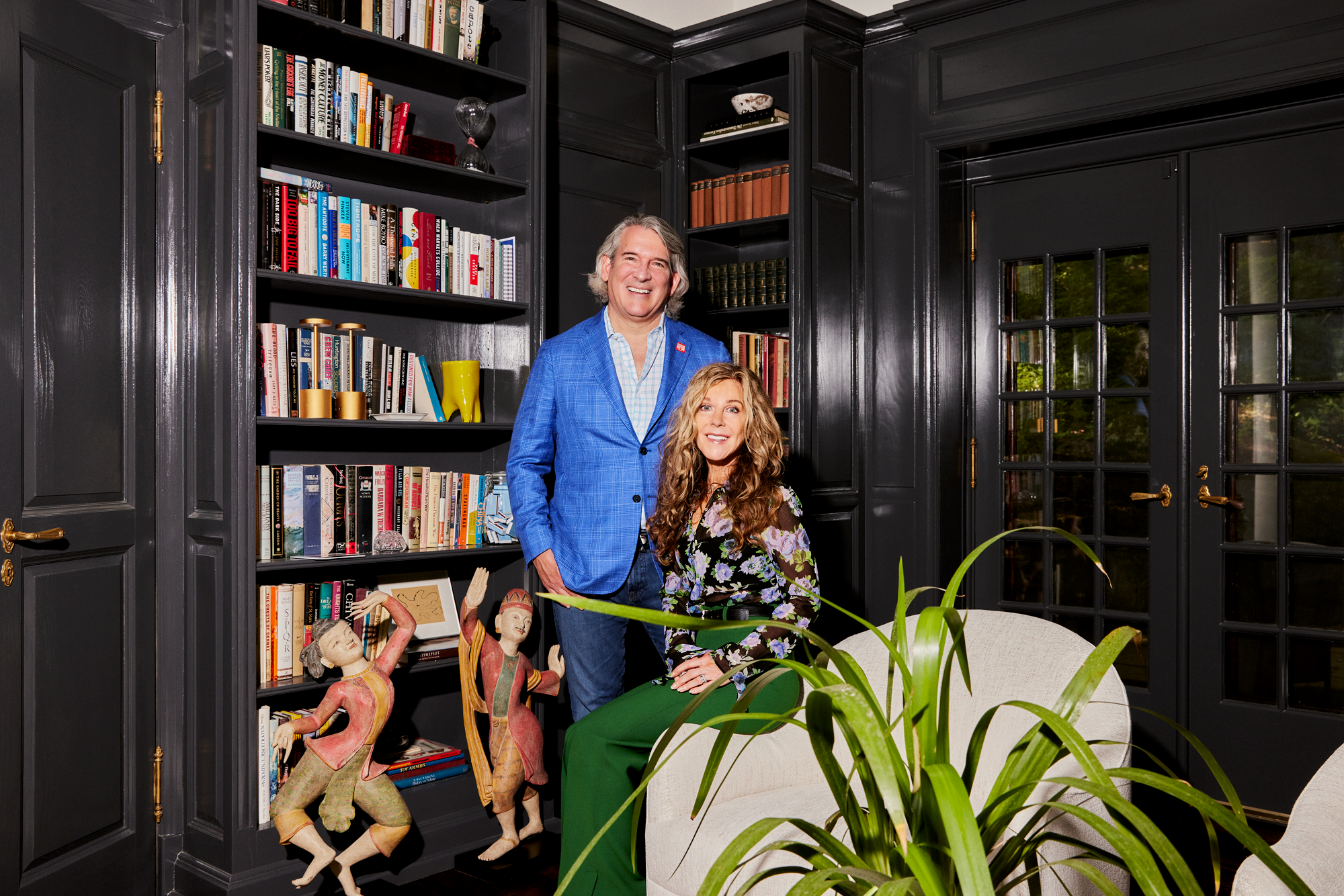
PHOTO: LAUREL GOLIO
“MIT changed my life,” says Schoen, who played on rugby and varsity soccer teams. “But without athletics and my fraternity, I’m not sure I’d have gotten through MIT. I was the first kid in my family to attend college. When I first arrived from Ohio, I was punching over my weight. Running on the soccer field and rugby pitch and friendships in my fraternity helped me move forward through MIT in a good way.”
Schoen cites former MIT president Howard Wesley Johnson, who also served as chair of the MIT Corporation and dean of MIT Sloan, as one of his mentors. “To have someone of his caliber help me think about my future is just one example of what things were like time and again at MIT. I want to say thank you by supporting what helped me survive and thrive at MIT, which for me was athletics and my fraternity.”
Soon after graduating, Schoen began his ongoing support of the MIT Department of Athletics, Physical Education and Recreation (DAPER). Taking a more active role, he worked with Donald E. Shobrys ’75, a track-and-field athlete and now director of the MIT Venture Mentoring Service, and Professor Emerita Candace Royer, then director of DAPER, to start Friends of DAPER, an alumni organization that raises funds and recruits volunteers for the department. Schoen also accepted an invitation to join the DAPER Visiting Committee.
“Nothing is more important than the whole person—body, mind, and spirit,” says Schoen. “Doing things I love and being challenged help me to feel healthy and strong and to do well. Athletics is part of the lives of many students and applicants. With athletic programs worthy of MIT and the students at MIT, we attract and keep the best students.
“MIT is the best school in the world, a school that can change the world and save the world. I’ve interviewed phenomenal applicants who were competing in sports at the highest level in high school. With top-notch facilities and more full-time coaches, MIT won’t lose great applicants who want to keep playing high-level sports.”
Noting that MIT’s intramural and physical education programs are equally important, Schoen says, “When I visit MIT, I see how facility upgrades and innovative programming are benefiting all students, not only varsity athletes.”
Schoen’s interest in care of the whole person—body, mind, and spirit—is shared by his wife, Kathleen, a clinical nutritionist. Parents of Nuala, 30, Quinn, 28, and Nikki, 26, they regard philanthropy as a family affair, and their priorities include cancer research and patient care.
“Cancer affects many families, including ours,” says Schoen, who chairs the board of the HealthCare Chaplaincy Network, a nonprofit that advances integration of spiritual care, including professional chaplaincy services, into clinical treatment.
“In the late 1940s, while my dad was in college on the GI Bill, his father was diagnosed with cancer. My father dropped out to work and to support his mother and sister. He never got to finish his degree and follow his passion—to be a sportswriter. And in 2009, my mother passed away quite suddenly and unexpectedly from small cell lung cancer.”
Not long after, Schoen met with John Oyler ’90, a fraternity brother, who was starting a company, BeiGene, designed to develop more accessible and affordable cancer treatments. In 2017, after 30 years of leadership roles at such investment banks as JP Morgan, DLJ, and Credit Suisse, Schoen joined BeiGene. He is now strategic advisor and special assistant to Oyler, BeiGene’s chairman and CEO. “After following BeiGene from its very beginning,” says Schoen, “I came to realize I wanted to be part of it. It’s been a beautiful adventure ever since.”